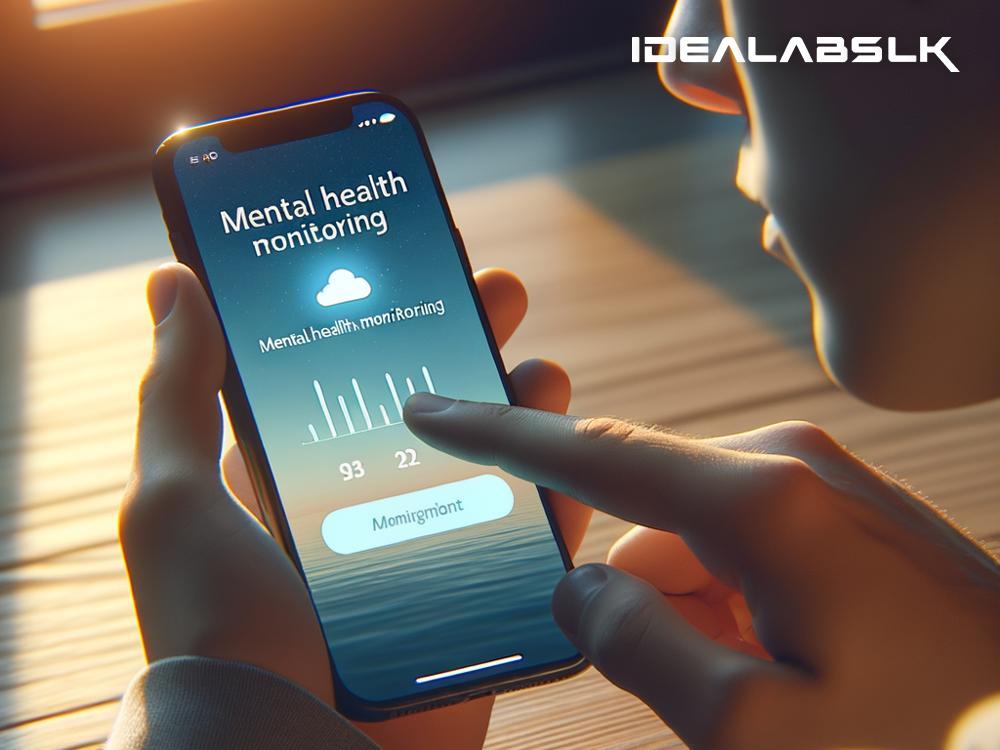In today's fast-paced world, mental health issues are becoming increasingly common. From stress and anxiety to more severe conditions like depression and bipolar disorder, many are struggling in silence. However, the good news is that technology is stepping up to offer some truly innovative solutions. Let's take a closer look at how technology is helping to detect and prevent mental health crises before they escalate, making a significant impact on many lives.
Early Detection with Apps and Wearables
One of the most significant advancements in technology is in the realm of smartphone apps and wearable devices. These tools are becoming incredibly smart. They can monitor our behavior, heart rate, sleep patterns, and even our voice tone. By analyzing this data, certain apps can identify signs of stress, anxiety, or depression early on.
For example, an app might notice when you're sleeping less or if your heart rate is consistently higher. It might then suggest that you're experiencing higher levels of stress. Some apps take it a step further by offering immediate coping strategies, like guided breathing exercises or connecting you to a mental health professional for a chat.
Wearable devices, like smartwatches, can also play a crucial role. They're always on, tracking your physical activities and physiological signals. This constant monitoring allows for a more comprehensive understanding of your health, including your mental state.
Virtual Therapy and Online Counseling
Another area where technology is making a big difference is in the availability of virtual therapy and online counseling services. Before the rise of technology, access to mental health care was limited by location, availability, and often the stigma associated with seeking help. Now, anyone with an internet connection can find professional support without having to leave their home.
Online therapy platforms connect users with certified therapists for video, chat, or phone sessions. This convenience makes it much easier for people to reach out for help the moment they feel they need it, rather than waiting for a crisis to occur. These services are especially crucial for those living in remote areas or those with mobility issues.
Social Media Monitoring and Alerting
While social media often gets a bad rap for contributing to mental health issues, it can also be a tool for good. New algorithms and monitoring tools can scan social media posts for signs of distress or suicidal thoughts. When such signals are detected, the system can alert the individual's support network or connect the individual with resources to get help.
This approach does raise privacy concerns, but when implemented with care and consent, it can be a lifesaver. It acts as an early warning system, providing help when it's most needed.
AI and Machine Learning for Predictive Analysis
Artificial Intelligence (AI) and machine learning are at the forefront of predictive health analytics, including mental health. By analyzing large amounts of data, AI can identify patterns that may indicate a potential mental health crisis before it happens.
For example, certain changes in speech patterns, social behavior, or online activity could suggest someone is heading towards a crisis. AI can detect these subtle changes and notify health professionals or the individual about the potential risk, offering resources or intervention options.
Gamification for Mental Health Awareness and Support
Lastly, an exciting development in technology is the use of gaming elements to support mental health. This approach, known as gamification, turns therapy and mental health exercises into engaging games, making the process less daunting and more fun.
These games can teach coping mechanisms, mindfulness, and other therapeutic techniques in an accessible way. For people who might feel hesitant to engage in more traditional forms of therapy, gamification offers a less intimidating entry point.
Conclusion
Technology is opening up new avenues for detecting and preventing mental health crises. From apps and wearables to AI and gamification, these tools are making it easier for people to stay aware of their mental health and seek help when needed. While technology should not replace professional mental health care, it can significantly complement it, offering support and intervention before a crisis occurs. The future of mental health care is here, and it's digital, accessible, and proactive.

